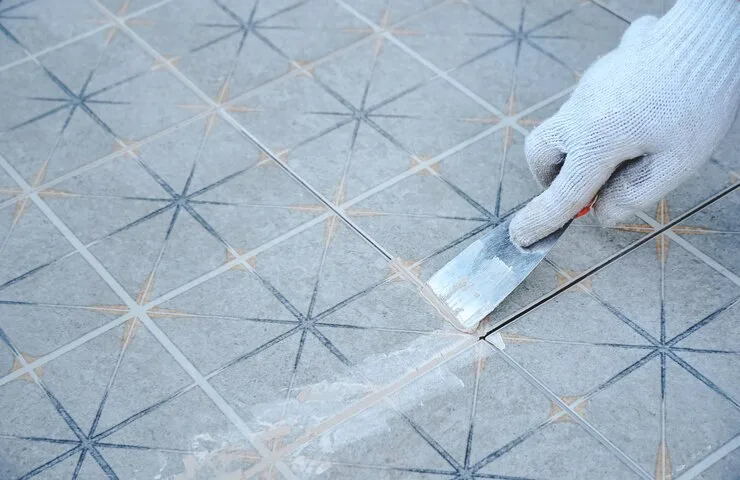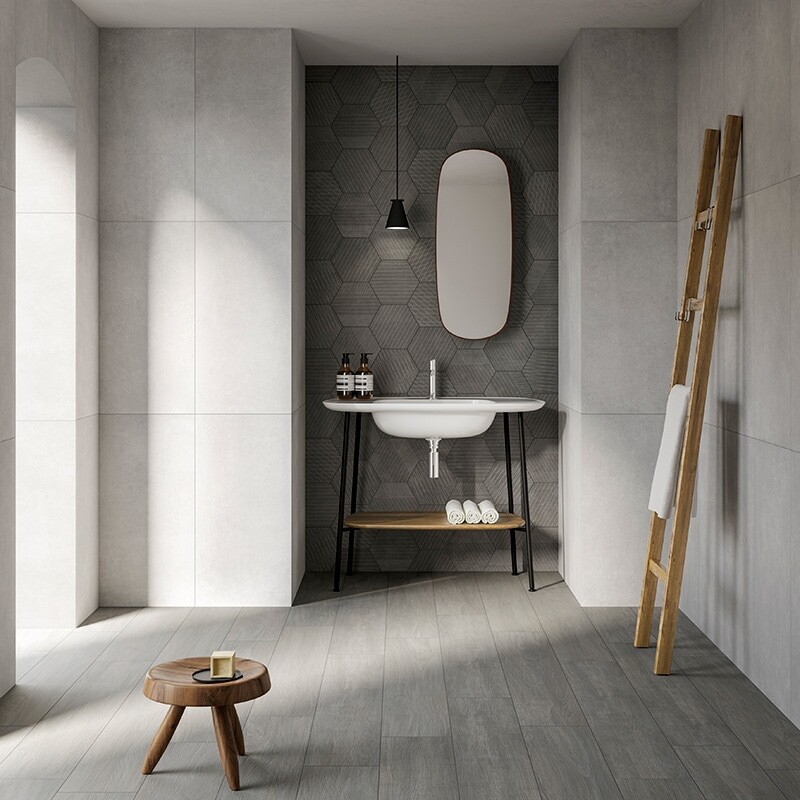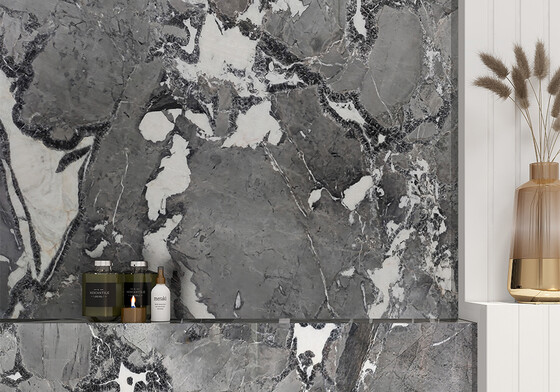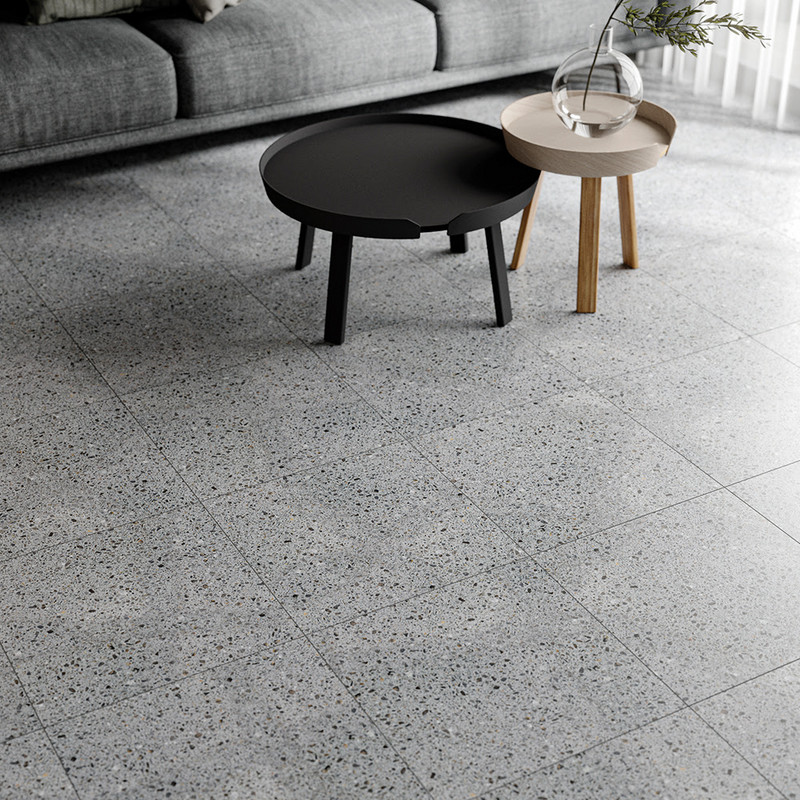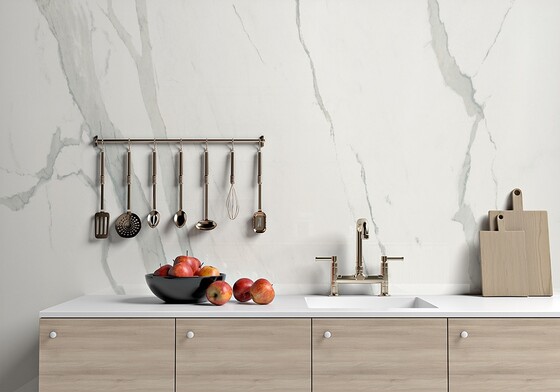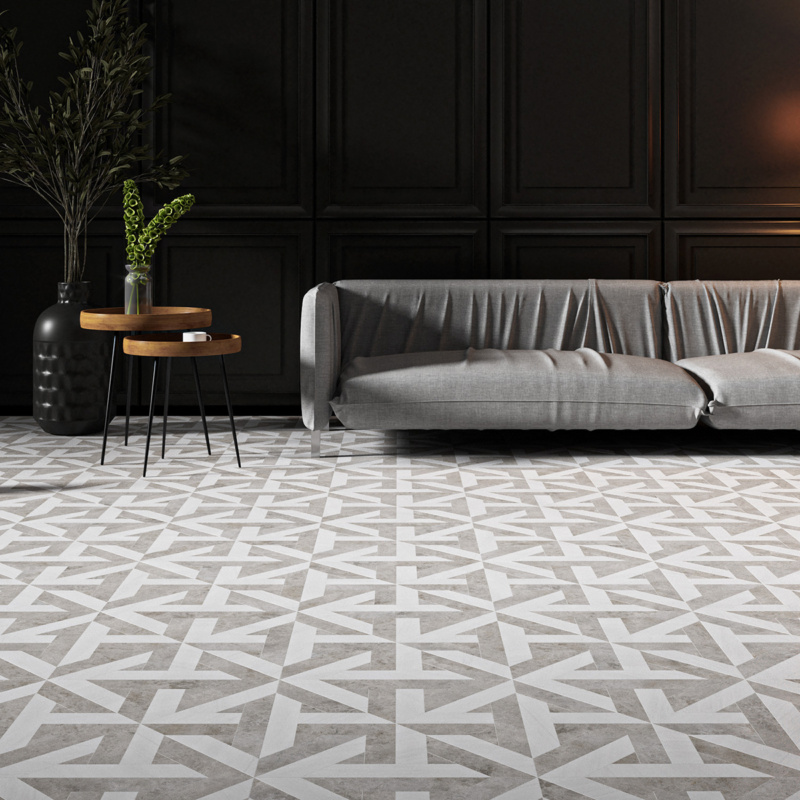Tiles are a popular flooring option for homeowners, prized for their versatility, durability, and visual appeal. Yet, preserving their glossy finish can pose a challenge, particularly when dealing with stubborn stains and grime. This is where tile cleaners play a crucial role. Available in various formulations, each tailored to address specific types of stains and dirt, these cleaners are indispensable. Having the appropriate tile cleaner on hand can make all the difference between a pristine floor and one that lacks luster.


Tile cleaners serve a dual purpose beyond mere appearance upkeep; they also contribute to prolonging the lifespan of your tiles. Accumulated dust, grime, and stains have the potential to deteriorate tiles over time, causing them to lose their luster and, in severe cases, chip or crack. By employing the appropriate tile cleaner, you can mitigate these risks, effectively safeguarding your tiles and ensuring their longevity.
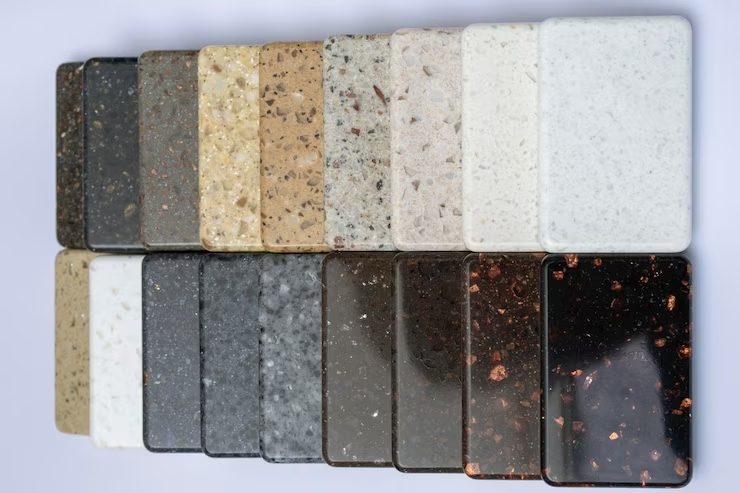

However, selecting the appropriate tile cleaner can be a daunting task given the multitude of options available in the market. Nevertheless, fear not, as this article aims not only to acquaint you with the diverse array of tile cleaners but also to furnish a comprehensive guide on their effective usage.
Comprehending Various Tile Types: Porcelain, Marble, Black Slate, and Terrazzo
Prior to delving into the intricacies of tile cleaners, it is imperative to grasp the distinct attributes of different tile varieties. This is crucial as the type of tile you possess will dictate the most suitable tile cleaner for your needs.
Porcelain tiles are known for their durability and resistance to stains and water, making them ideal for areas with high foot traffic or prone to spills. However, they can be prone to grout haze, which requires a specific type of cleaner – the grout haze remover.
Marble slabs, on the other hand, are a symbol of luxury, often used in kitchens and bathrooms. However, they can be quite sensitive to acidic substances and can easily get stained. Therefore, they require gentle but effective marble-specific tile cleaners.
Black slate tiles, with their unique texture and rustic appeal, are another popular choice. However, they can be prone to scratches and water stains, needing a tile stain remover that’s potent yet gentle enough not to damage the tile’s surface.
Finally, terrazzo flooring, whether poured in place or precast as a composite material, presents a seamless aesthetic that is simple to upkeep. Nonetheless, the porous composition of terrazzo tiles renders them susceptible to staining, necessitating the use of a powerful floor tile stain remover.
What Leads to Tile Stains?
Tile stains can stem from various sources. Among the most prevalent causes are spills of food and beverages, accumulation of dirt and grime from foot traffic, and the presence of hard water stains. These stains can prove challenging to eliminate, particularly once they have become ingrained.
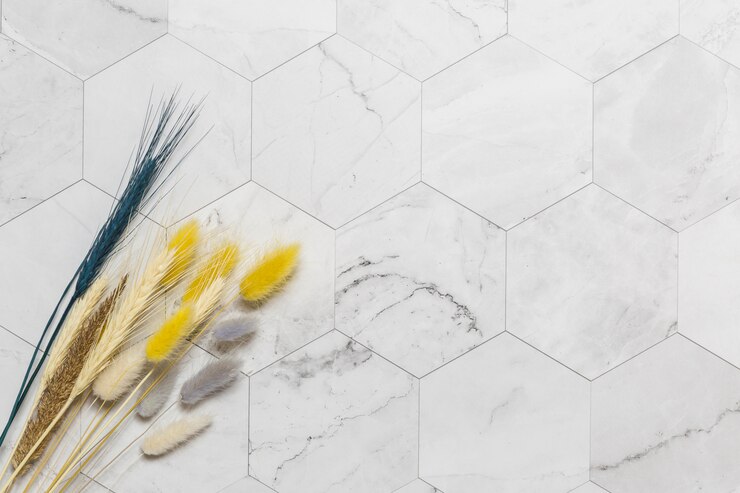

Food and beverage spills can cause stains on tiles if not cleaned up immediately. This is especially true for beverages like coffee, tea, and wine, which have strong pigments that can seep into the pores of the tiles, causing a stain. Similarly, food spills, especially those with strong colors like curry or pasta sauce, can also stain your tiles if left unattended.
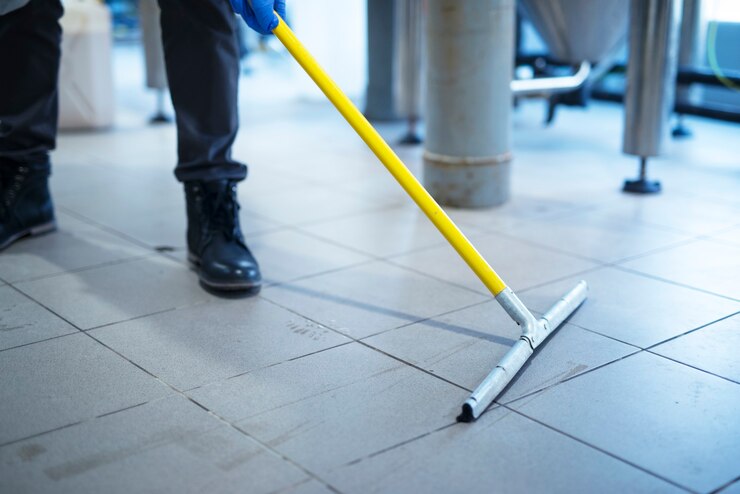

Dirt and grime tracked in from foot traffic represent another prevalent cause of tile stains, especially in high-traffic zones like hallways or kitchens. Over time, the accumulation of dirt and grime can become embedded in the tile, resulting in stubborn stains that are challenging to eradicate.
How to Remove Stains from Tiles?
Today is your lucky day! We have an extensive guide on maintaining your natural stone tiles! While removing stains from tiles may seem daunting, it can be effectively accomplished with the right products and techniques. The initial step is identifying the type of stain you’re confronting. Is it a food or beverage spill, dirt and grime, or a hard water stain? Once you’ve determined the stain type, you can select the appropriate tile cleaner for the job.
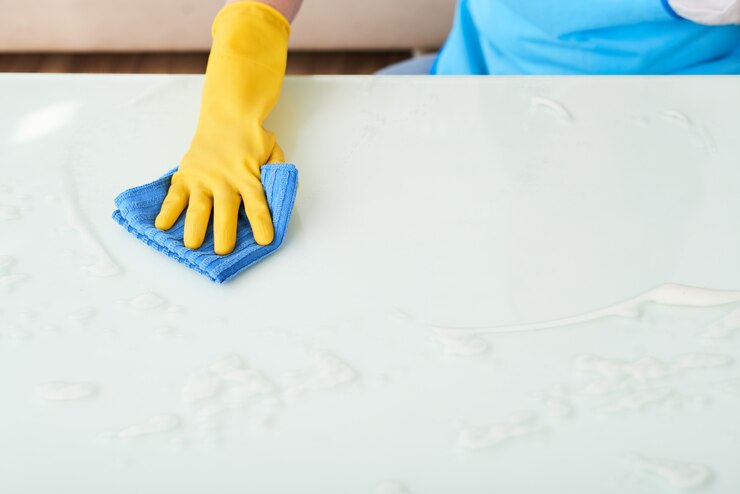

For food and beverage stains, a gentle tile cleaner with a neutral pH can be effective. This type of cleaner can lift the stain from the tile’s surface without causing any damage. Simply apply the cleaner to the stain, leave it on for a few minutes, then scrub gently with a soft brush or cloth. Rinse thoroughly with warm water and dry the area thoroughly.
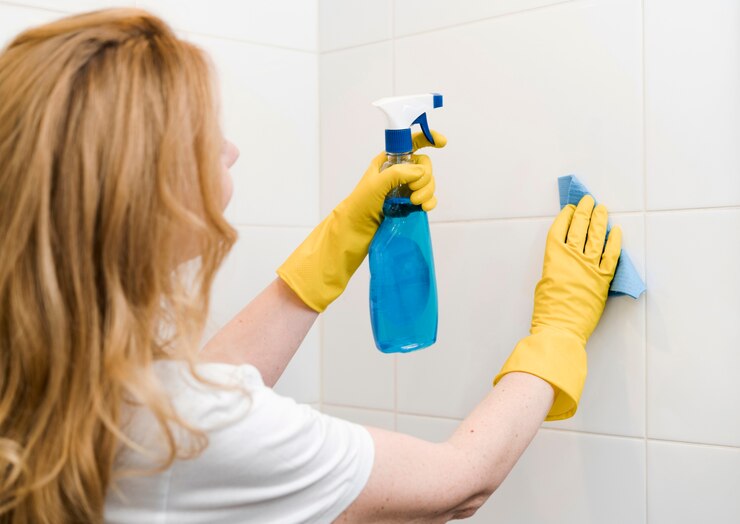

For dirt and grime stains, a stronger tile cleaner may be required. Look for a cleaner specifically designed for heavy-duty cleaning. Apply the cleaner to the stain, leave it on for a few minutes to let it penetrate the grime, then scrub with a stiff brush. Rinse thoroughly and dry.
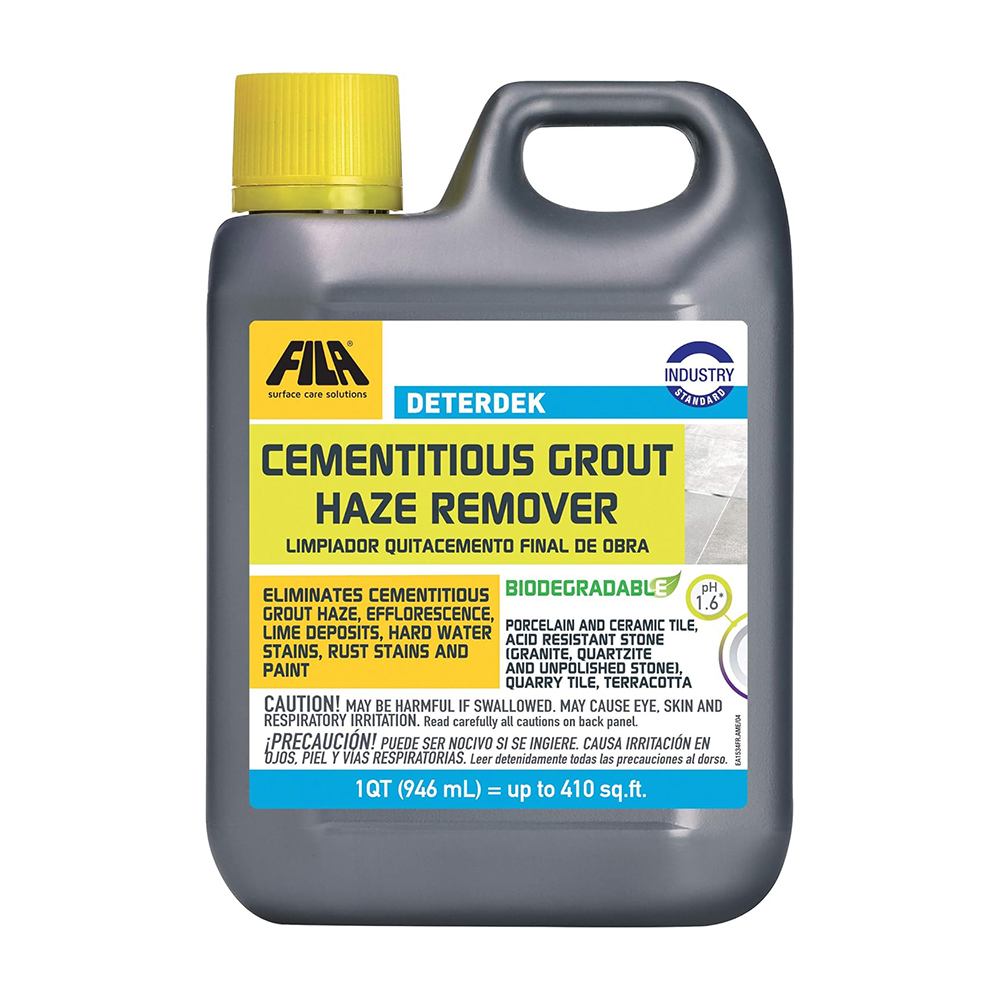

Cementitious Grout Haze Remover Tile Care&maintenance Cleaners
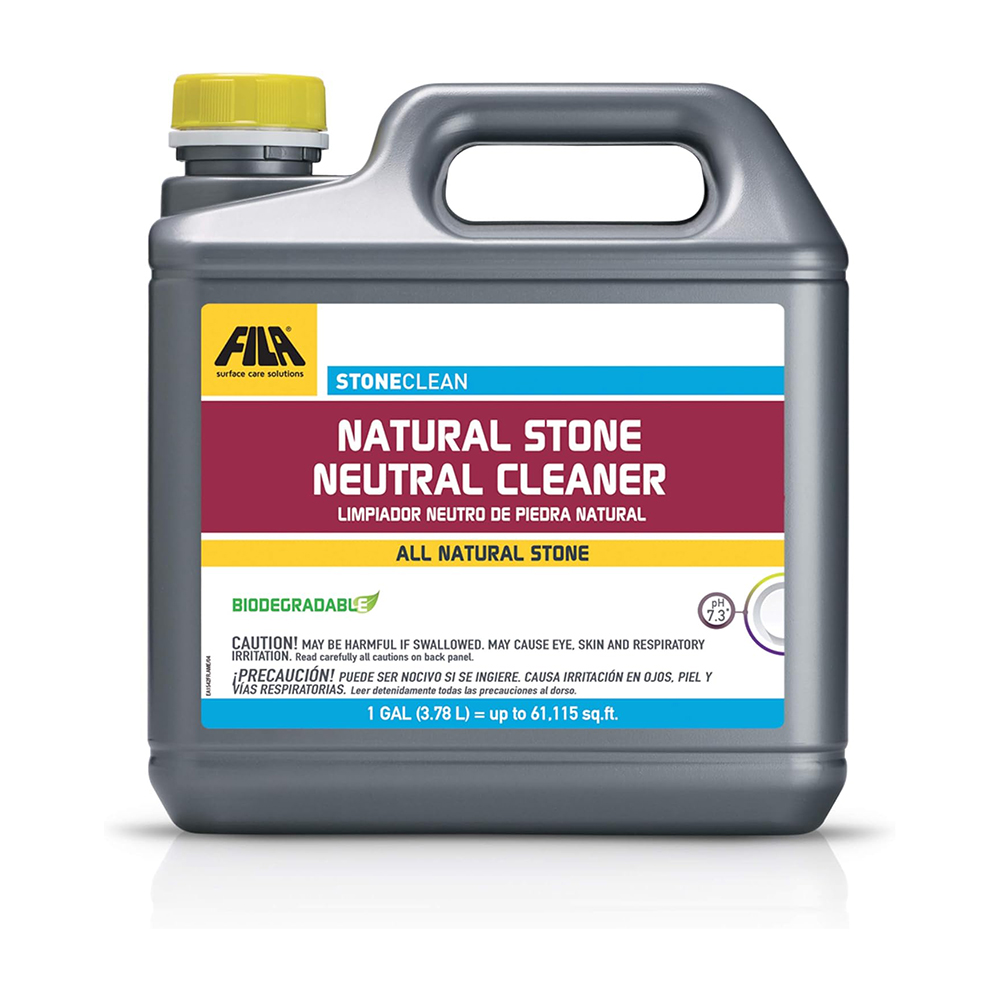

Natural Stone Neutral Cleaner 1 Gallon Tile Care&maintenance Cleaners
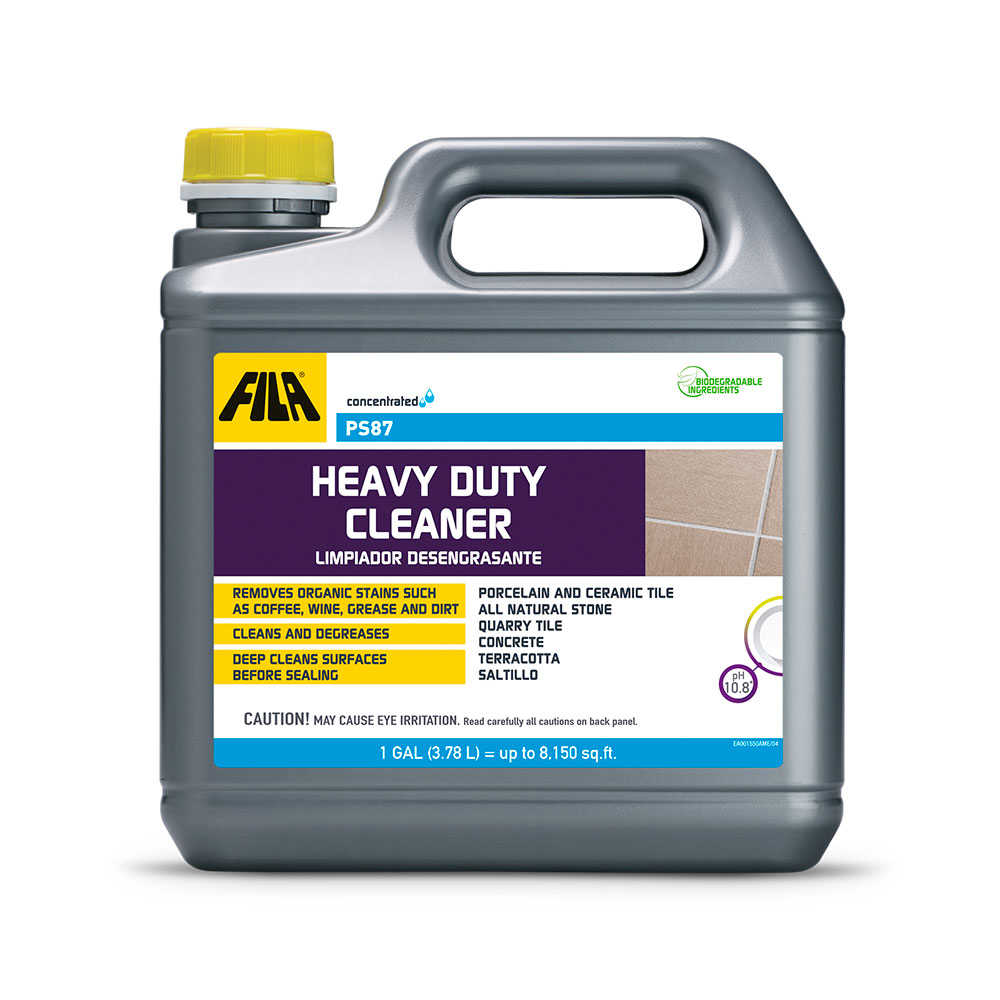

Heavy-Duty Glass Tile Care and Maintenance Cleaners
The Importance of Tile Protectors
In addition to cleaning, safeguarding your tiles is another essential aspect of maintenance. Tile protectors play a vital role in this regard. By creating a protective barrier on the surface of your tiles, they prevent stains and dirt from infiltrating the pores. This not only simplifies cleaning but also prolongs the lifespan of your tiles, including terracotta tiles.
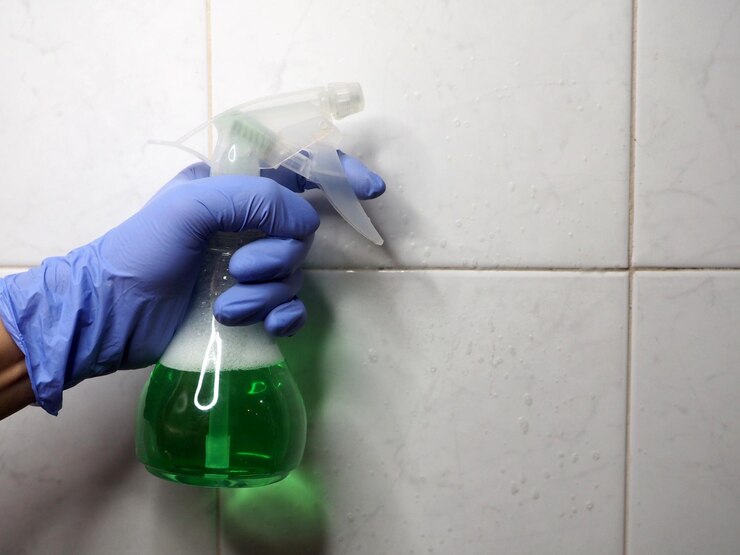

Tile protectors come in various forms, including sealants and waxes. Sealants are typically used on porous tiles like terrazzo or natural stone, creating a protective layer that seals the pores, preventing stains and dirt from penetrating the surface. When choosing a tile protector, consider the type of tile you have and the level of protection you need. Also, always follow the manufacturer’s instructions to ensure effective application.
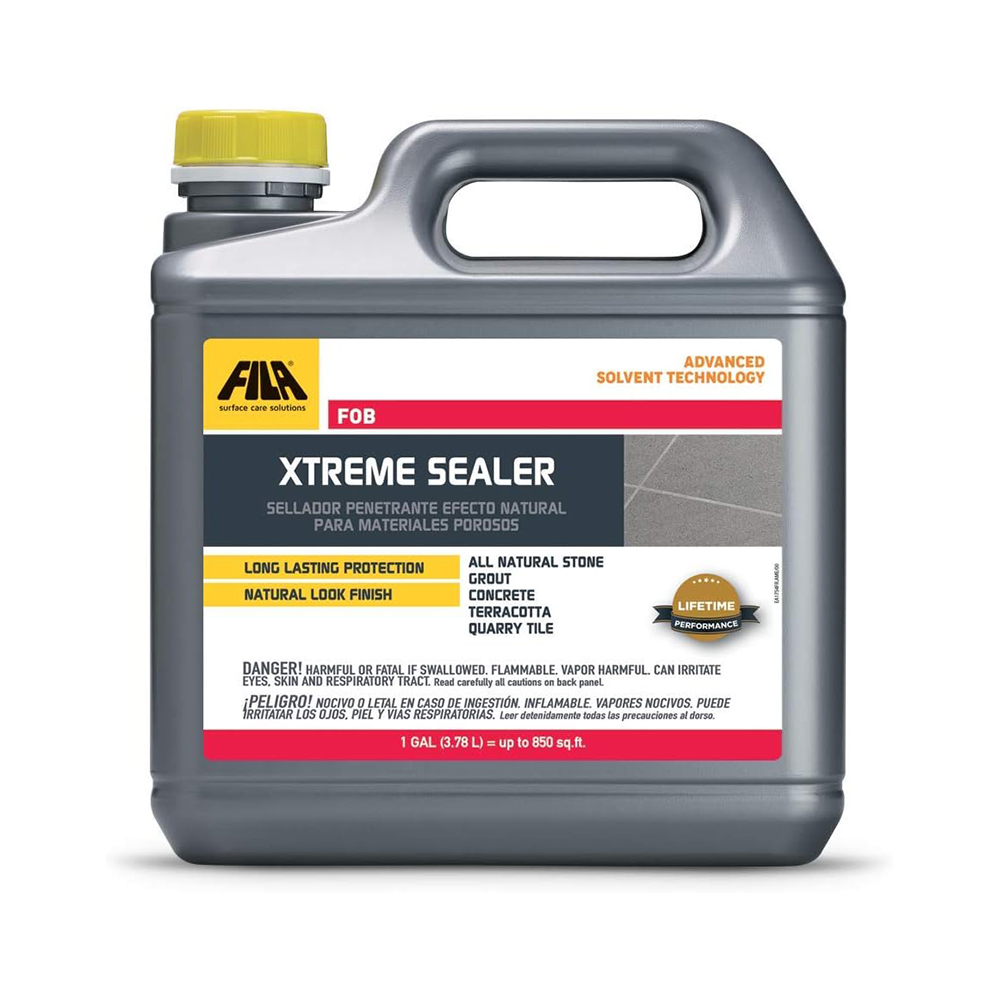

Xtreme Sealer Solvent Based Fob Tile Care&maintenance Protectors
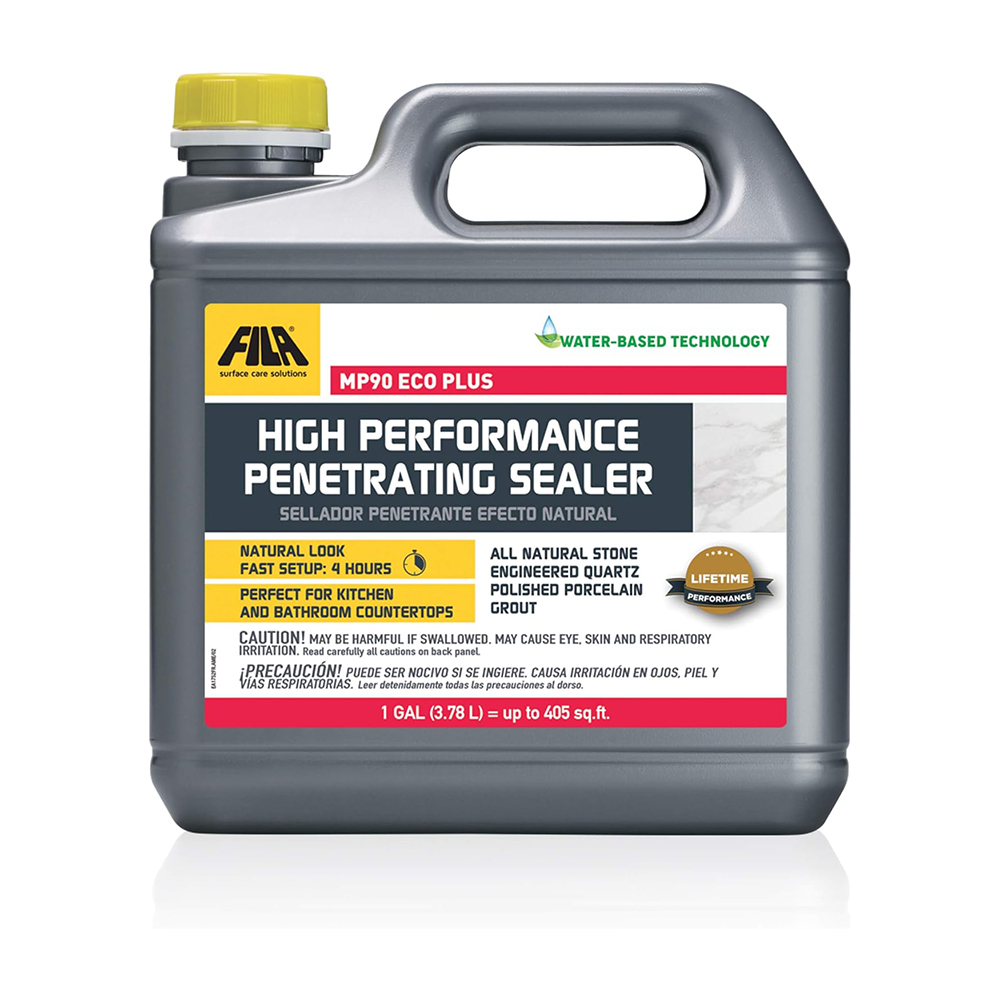

High Performance Penetrating Sealer Tile Care&maintenance Protectors
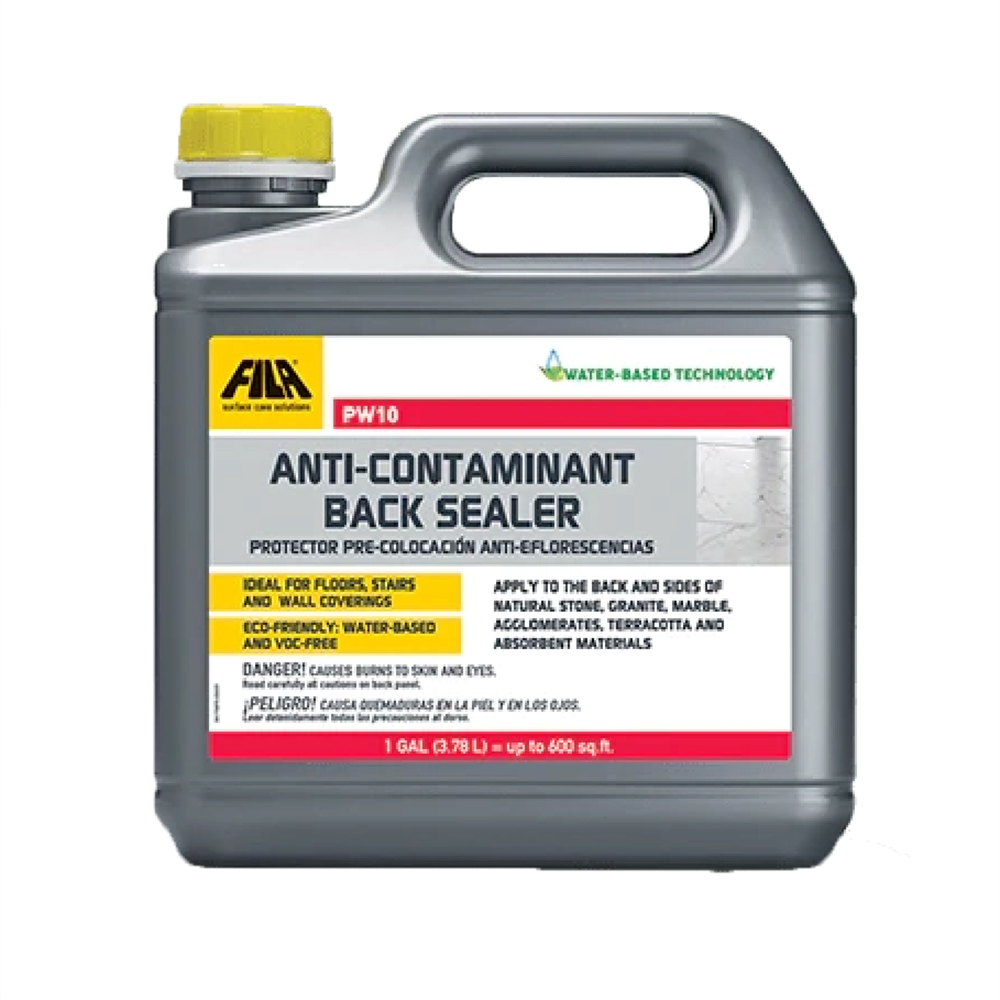

Anti-Contaminant Back Sealer Water-Based Tile Care and Maintenance Protectors
A Comprehensive Guide to Grout Haze Removers
Grout haze presents a frequent challenge for homeowners following tile installation. It refers to the thin layer of grout residue that persists on the tile surface post-grouting, resulting in a cloudy or lackluster appearance. If not addressed promptly and effectively, grout haze can prove stubborn and detract from the aesthetic appeal of your tiles.
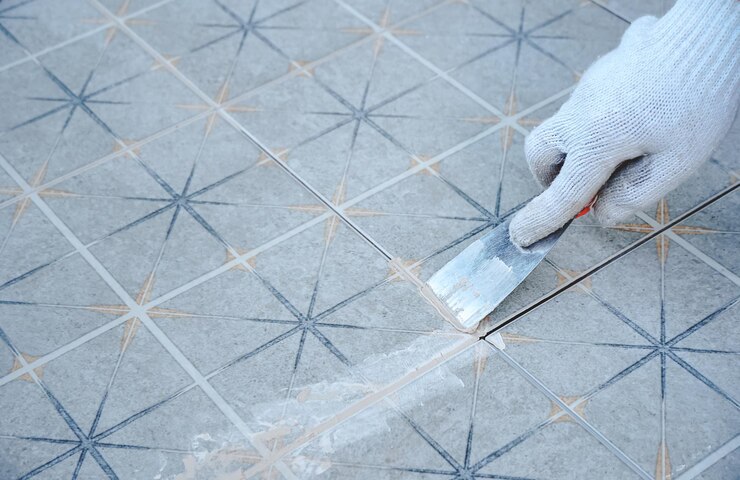

Grout haze removers are specially designed to deal with this issue. They contain mild acids that dissolve the cementitious material in the grout, allowing it to be easily wiped away. Some grout haze removers also contain cleaning agents that help remove any residual dirt or grime.
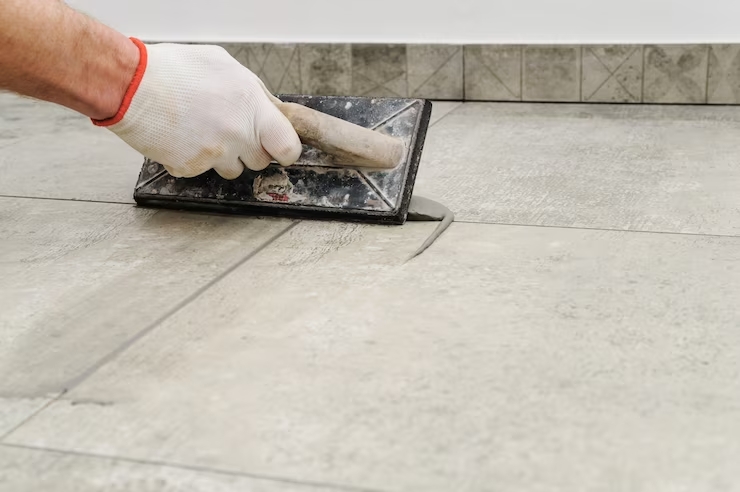

Grout haze removers are a great tool to have in your tile-cleaning arsenal. However, they should be used with caution as the acids they contain can damage certain types of tiles. Always test the product on a small, inconspicuous area first to ensure it won’t cause any discoloration or damage.
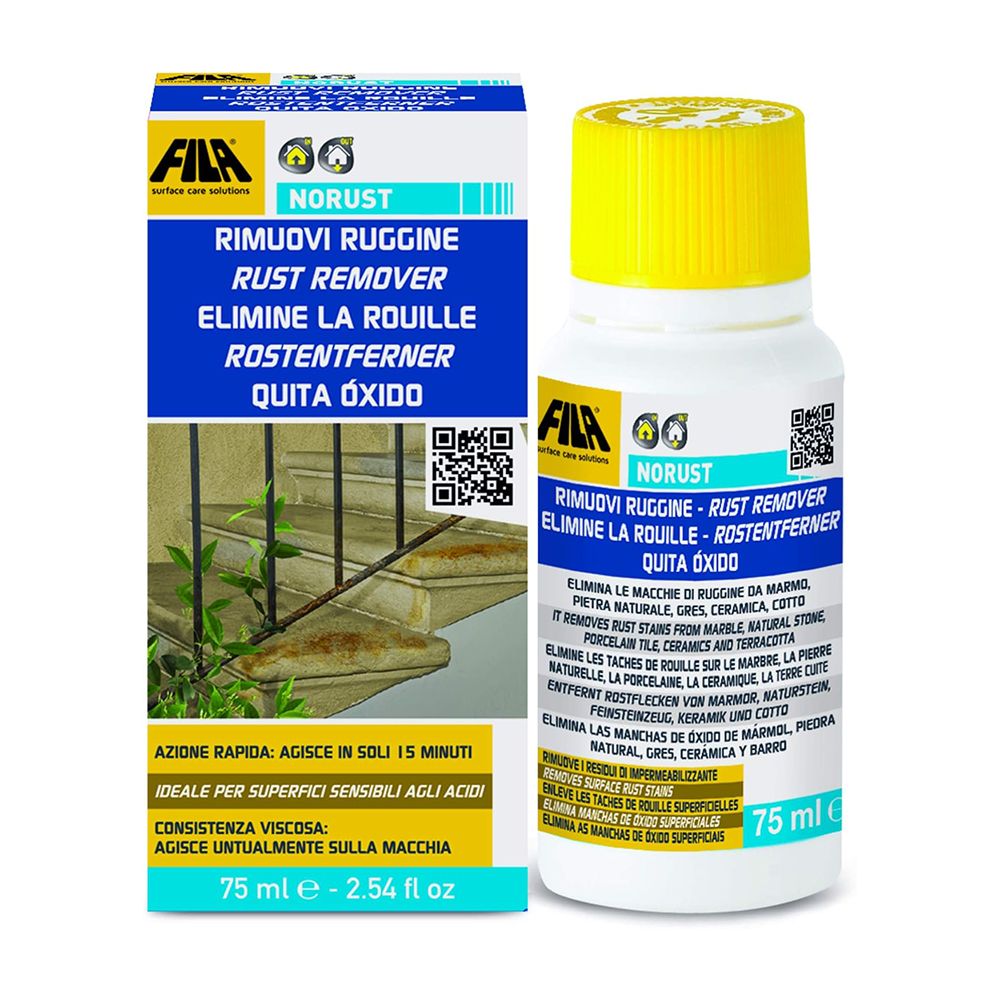

Rust Stain Tile Care&maintenance Removers
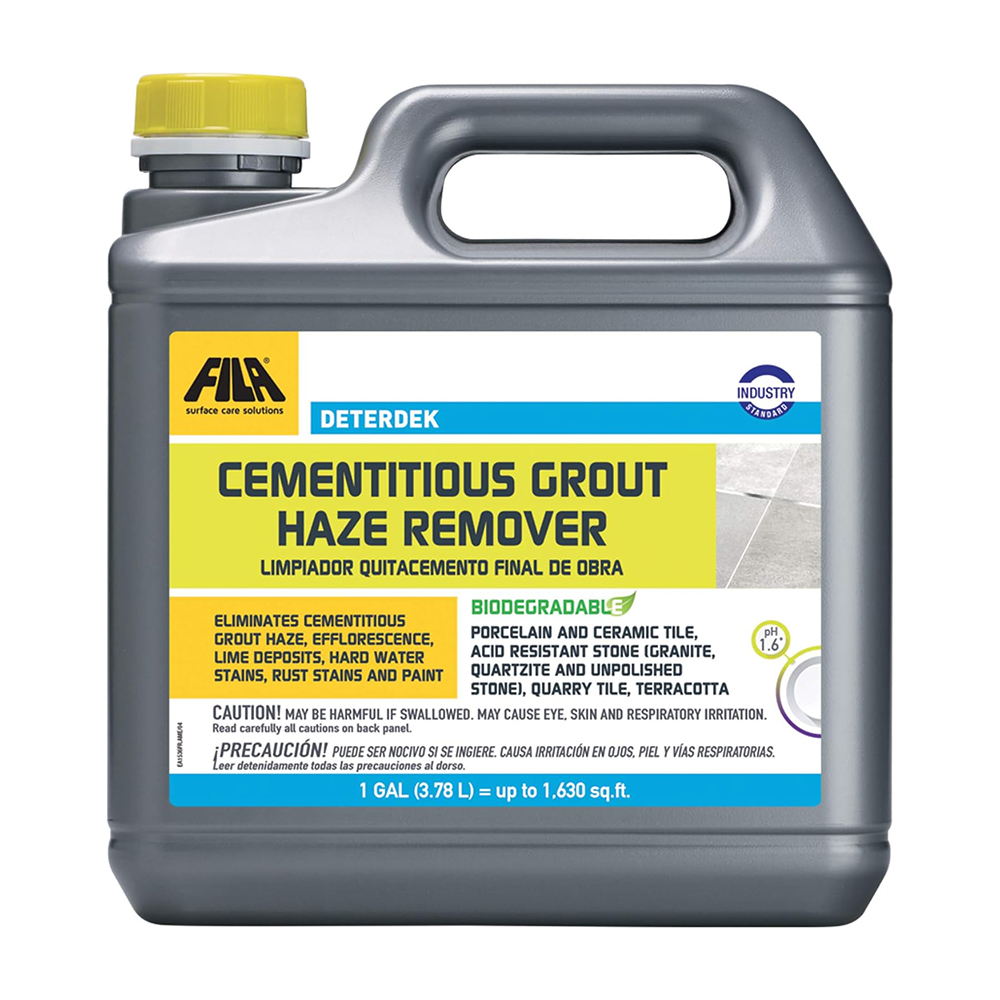

Deterdek Grout Haze Gl Tile Care&maintenance Removers
Best Tile Cleaners for Porcelain Countertops and Marble Slabs
When it comes to porcelain countertops and marble slabs, choosing the right tile cleaner is crucial. This is because these types of tiles can be quite sensitive and using the wrong cleaner can cause damage.
For porcelain countertops, a gentle but effective cleaner is ideal. Look for a cleaner with a neutral pH that can remove stains and dirt without causing any damage. Some porcelain tile cleaners also contain agents that add a glossy finish, enhancing the look of your countertop. If you want some details on the pros and cons of porcelain countertops, check out our blogs!
For marble countertop styles, a specially formulated marble cleaner is a must. Marble is sensitive to acidic substances, so a cleaner with a neutral pH is necessary to prevent damage. Some marble cleaners also contain polishing agents that bring out the natural shine of the marble, making your slabs look new and vibrant.
How to Remove Hard Water Stains from Tiles?
Hard water stains can be a real eyesore, especially on beautiful tiles. These are caused by minerals like calcium and magnesium in the water, which can leave a white or chalky residue on your tiles. But fear not, as these can be effectively removed with a good tile cleaner.
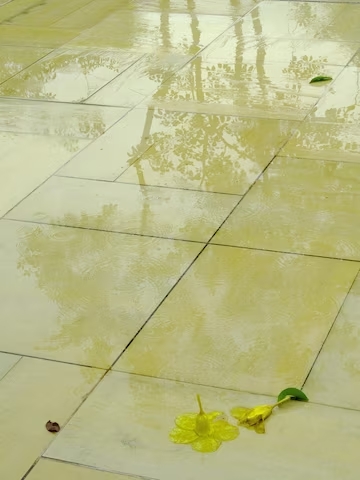

To remove hard water stains from tiles, you’ll need a tile cleaner that’s specifically designed to deal with mineral deposits. These cleaners often contain mild acids that break down the mineral deposits, allowing them to be easily wiped away. Apply the cleaner to the stain, leave it on for a few minutes to allow it to work its magic, then scrub with a soft brush or cloth. Rinse thoroughly with warm water to remove any leftover product and dry the area thoroughly.
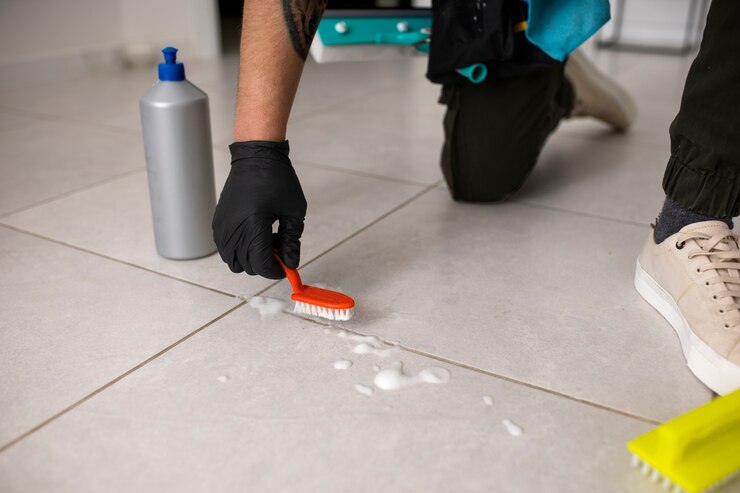

Remember to always test the cleaner on a small, inconspicuous area first to ensure it won’t cause any discoloration or damage. Also, always wear protective gloves and goggles when using these cleaners as they can be quite potent.
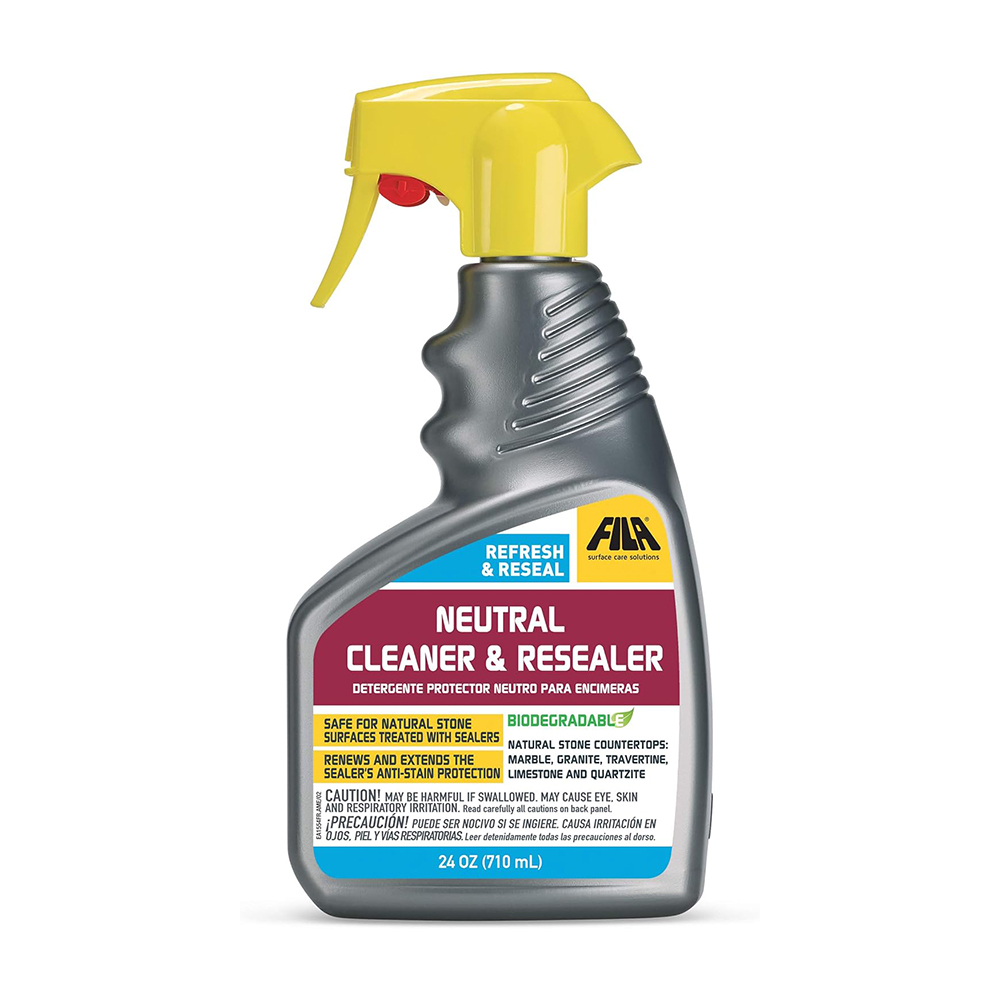

Neutral Cleaner – Resealer Tile Care&maintenance Cleaners
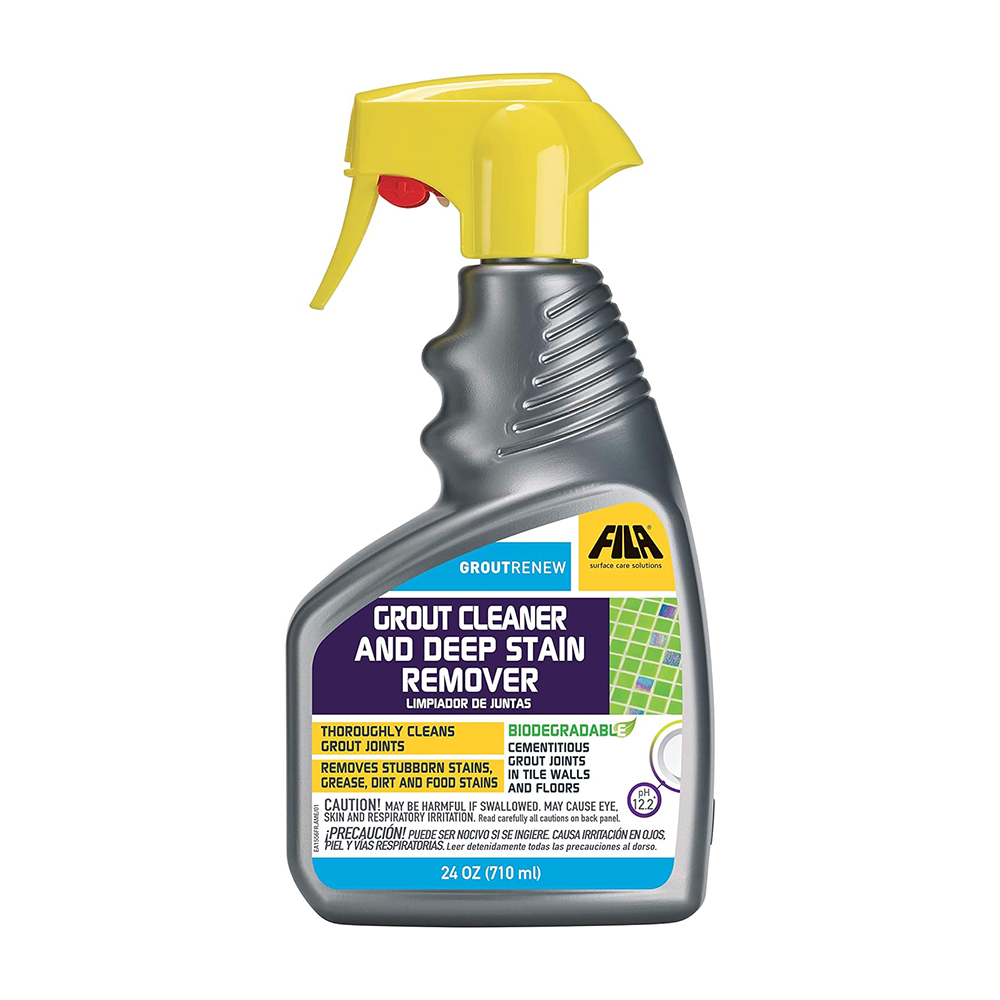

Grout Cleaner Deep Stain Remover Tile Care&maintenance Cleaners
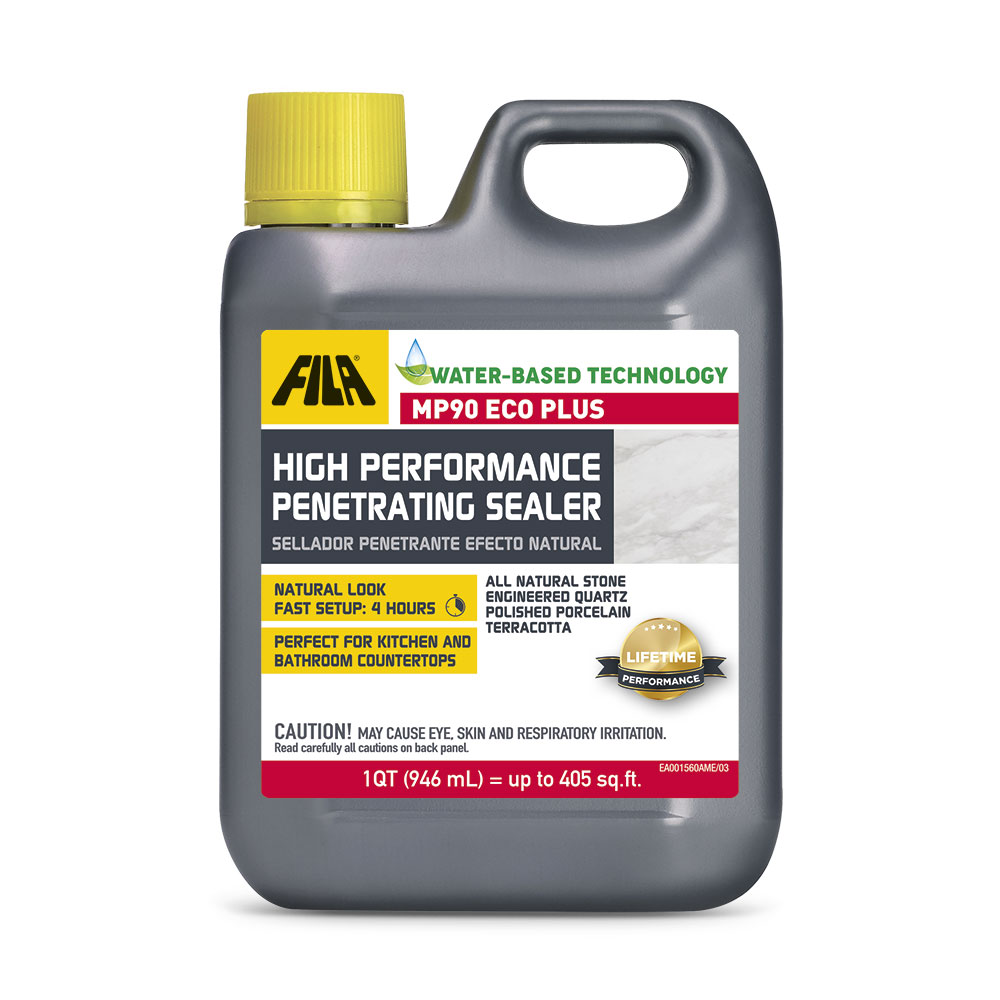

Eco Plus Penetrating Stone Enhancer Qt Tile Care&maintenance Protectors
Essential Tile Cleaning Tips
Cleaning your tiles effectively requires more than just the right tile cleaner. Here are some essential tips to keep in mind:
- Always sweep or vacuum your tiles first to remove loose dirt and debris. This will prevent them from getting ground into the tile during the cleaning process.
- Always test the cleaner on a small, inconspicuous area first to ensure it won’t cause any discoloration or damage.
- Don’t let stains sit for too long. The sooner you tackle them, the easier they’ll be to remove.
- Always rinse your tiles thoroughly after cleaning to remove any leftover product. Failure to do so can create a residue that attracts more dirt and grime.
- Dry your tiles thoroughly after cleaning to prevent water spots and streaks.
- Consider using a tile protector to extend the lifespan of your tiles and make cleaning easier.
Achieving Spotless Tiles with Effective Cleaners
Achieving spotless tiles is easier than you think. With the right tile cleaners, a good cleaning routine, and a few essential tips, you can keep your tiles looking new and vibrant for years to come. Remember, the key is to choose the right cleaner for your type of tile and stain and to use it properly.
So, don’t let stains and grime take away the beauty of your tiles. Equip yourself with the right tile cleaners and embrace the joy of clean, sparkling tiles. Your floor deserves it! Visit our tile store and explore different kinds of tile cleaner options that fit you!
